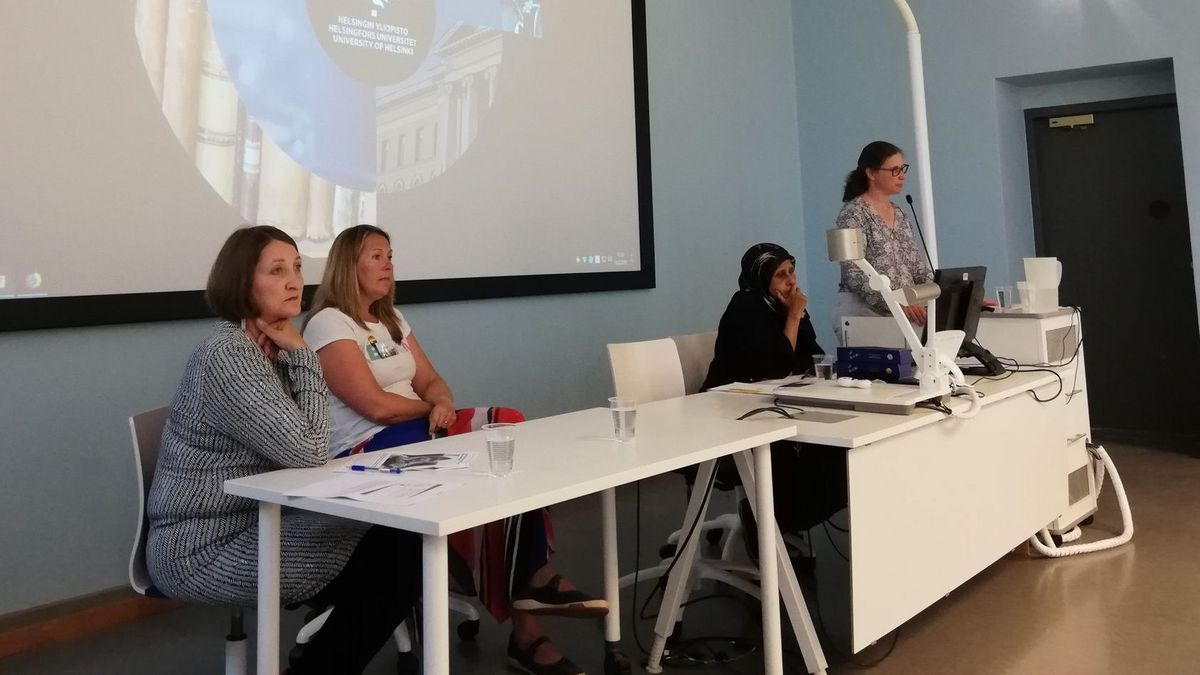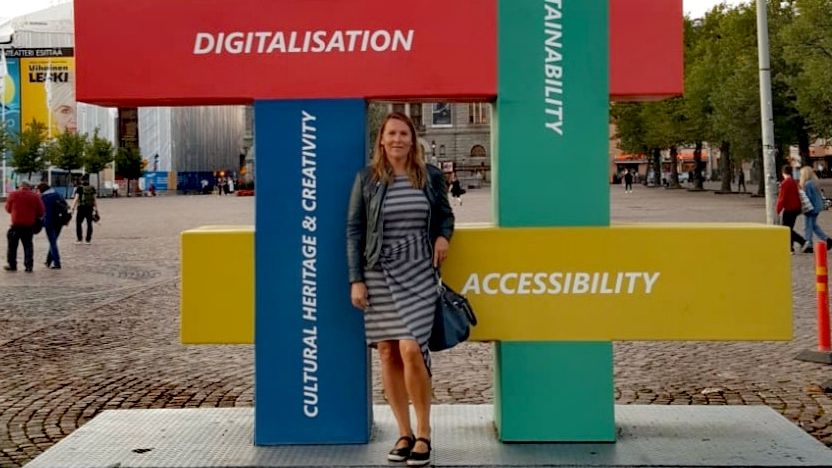Helsinki is the city of digitalisation, sustainability, accessibility, cultural heritage and creativity. Accordingly, the MeRela2019 conference offered a truly transdisciplinary look at issues related to ageing, dying and caring in today’s society. The three-day conference was put together of fascinating key-notes, presentation and poster sessions: all discussing meaning-making and the meaning of meaning-making in different contexts. The presentations demonstrated that for aging people meaningfulness is bound to many aspects, such as autonomy, good care, social concerns, family relations, bereavement, isolation, and many other self-perceived aspects that directly affect their health and well-being. This challenges researchers, policy makers and caregivers who are concerned of providing best possible care to each individual according to their needs, wishes and life-situation.
The first day of the MeRela Conference began with a key note from Prof. Nigel King (Uni Huddersfield, UK) who gave an inspiring talk about Pictor method based patient-caregiver-care provider interviews. The afternoon continued with paper sessions where scholars from Canada to Austria discussed patients’ attitudes, healthcare practices and relationships. On Wednesday evening participants gathered in Tiedekulma for the reception. Fun fact: the University of Helsinki provides to their guest only vegetarian food, which follows the sustainability idea of the entire city.
On Thursday Prof. Rosie Harding (Birmingham Law School, UK) addressed the issue of relationality in making choices regarding individual care. In particular people with learning disabilities, cognitive impairment and dementia need space and skilled guidance to express their wishes, and make end of life choices about the social, medical and legal aspects of death and dying. Thereafter, the entire day was full of marvellous and inspiring talks. It became visible how participants connected and surely many new project and collaboration ideas emerged from this and the following day. The social program continued with a visit to the OODI Library. If not earlier then in Oodi the true colours of Helsinki became visible to all first time visitors. The world best library and top 100 places to visit is a temple of digitalisation, sustainability, accessibility, cultural heritage and creativity.
On Friday Prof. Hans Stiffoss-Hanssen (VID Specialized University, NO) withdraw in his keynote ideas from earlier presenters' talks andsummarised the conference demonstrating the great usefulness of transdisciplinary research even if gaps emerge and cannot be bridged immediately. In time, transdisciplinary meaning-making overcomes its frictions and will hopefully evolve towards better understanding of relationships and meaning-making in different context.
The Friday afternoon was dedicated to transnational end-of-life and caregiving problems. Impulses were given by Mulki Al-Sharmani (Uni Helsinki, FI), Dr. Piret Paal (PMU, AT) and Prof. Sirpa Wrede (Uni Helsinki, FI) who all expressed their concerns about policy making that hinders informal caregivers to provide care in transnational setting. Following questions were posed to panelists: Why is it important to talk about multicultural/multifaith aging and dying just now? What changes of practice/attitudes/knowledge would be needed to face the needs of aging people from diverse backgrounds? Professor Wrede pointed out the growing potentially precarious migrant citizenship and transnational vulnerability and the need for global understanding that in care situations informal caregivers need political and legal support to reach out to their elderly and dying relatives across the borders. Panelists agreed that sometimes transnational care can be more resourceful than local care provision, but this still needs to be coordinated and monitored to make better decisions both medically as well as culturally. Currently, national health and social care systems are not necessarily prepared to support informal caregivers who would like to provide care to their close-ones in other countries or bring their elderly to live with them in old age and at the end of life. To change this a global effort is needed.
And last but not least: thank you Prof. Auli Vähäkangas, Dr. Suvi Saarelainen, Anna Mäki-Petäjä-Leinonen and all power women in green shirts for this wonderful and informative get-together!




